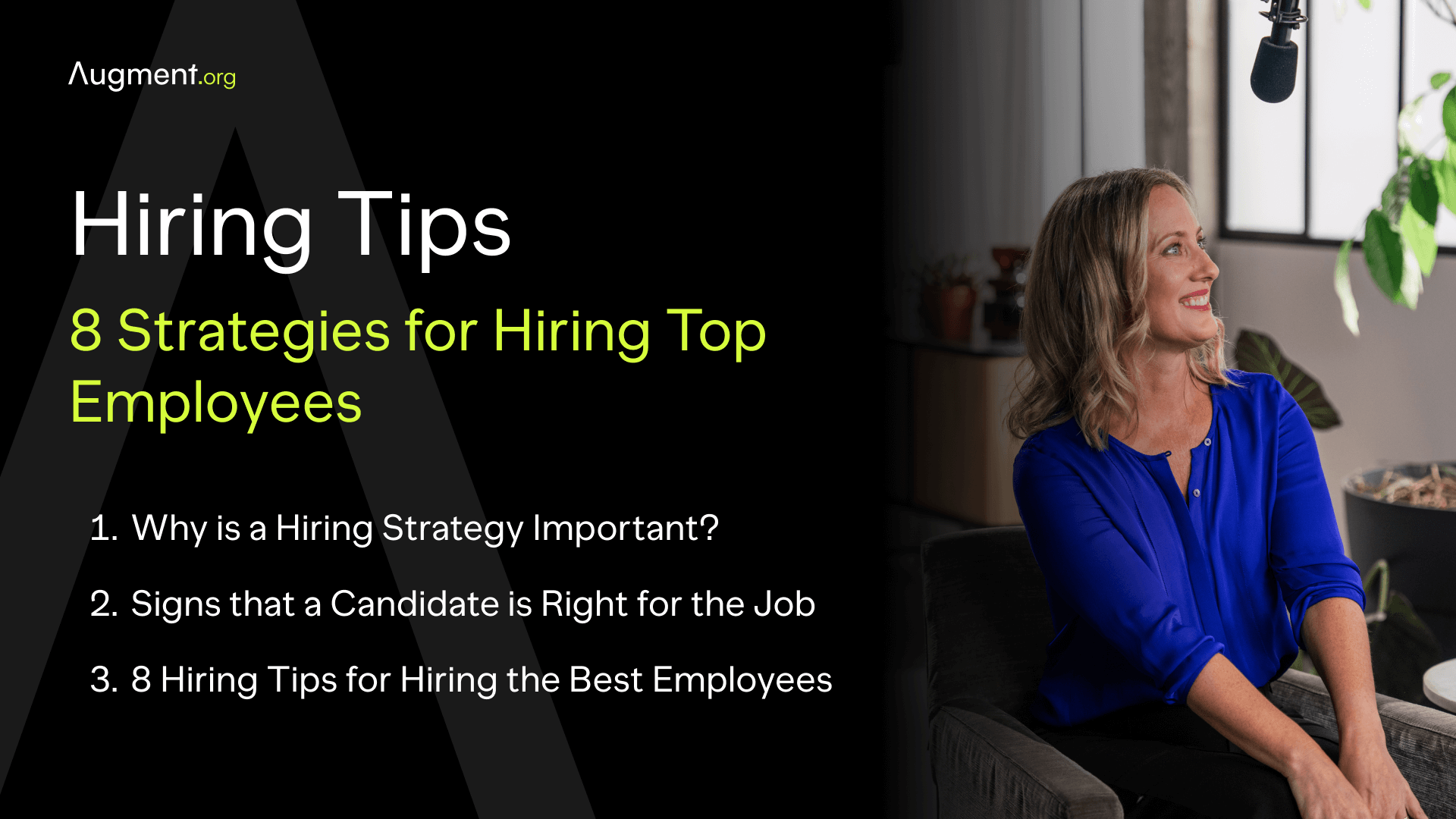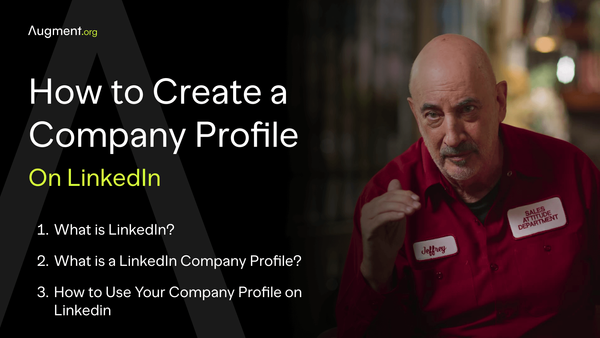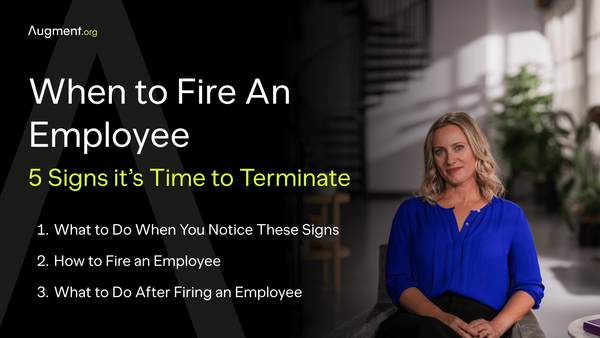Hiring Tips: 8 Strategies for Hiring Top Employees
Navigating the hiring process efficiently is key to securing top talent for your team. Learn practical hiring tips to identify and attract the best candidates, streamline your interview process, and enhance your company culture through smart recruitment strategies.

What is a Hiring Process?
The hiring process is a crucial sequence of steps that an organization undertakes to attract, select, and onboard qualified candidates for job vacancies. It begins with identifying the need for a new employee and extends to integrating the new hire into the company culture.
A robust hiring process typically involves several key stages. First, it starts with crafting clear and detailed job descriptions that accurately reflect the job responsibilities and required qualifications. This step is fundamental in attracting the right candidates and reducing the time spent on unsuitable applications.
Next, the process moves to the recruitment strategy, where hiring managers utilize various channels such as job boards, social media accounts, and employee referrals to reach potential candidates. This stage is vital in bringing in a diverse pool of applicants, including those interested in remote work opportunities.
Following this, the interview process takes place. It's designed to assess not only the candidates' qualifications but also their compatibility with the company's culture and work environment. Hiring managers and current employees often collaborate to select the most suitable candidates who align with the organization's values and long-term goals.
Finally, the hiring decision is made, and the chosen candidates are offered the job. Once they accept, the process concludes with onboarding, where new employees are introduced to their roles, colleagues, and the overall work culture. This final step is essential for employee retention and ensuring a smooth transition for both the new hires and the organization.
Throughout this process, it's crucial to maintain a focus on finding not just qualified candidates, but the right candidates who can contribute positively to the business's growth and success.
Why is a Hiring Strategy Important?
A well-defined hiring strategy is essential for any organization aiming to grow and succeed. It goes beyond just filling open positions; it's about finding the right person for the job who aligns with the company culture and contributes to the overall business growth.
Having a clear hiring strategy helps in attracting highly qualified candidates. It ensures that the job description is tailored to draw in not just any applicants, but the ideal candidate for each role. This is especially important in a competitive job market where top candidates have multiple options. A strategic approach makes your company stand out to prospective employees, including those seeking remote work opportunities.
A thoughtful hiring process also plays a crucial role in employee retention. By selecting candidates who are not only skilled but also a great fit for the work environment and company culture, organizations are more likely to retain these employees long-term. This reduces the costs and disruptions associated with frequent hiring.
Additionally, a robust hiring strategy considers the future needs of the business. It involves understanding the soft skills and compatibility skills necessary for roles, especially in dynamic sectors. This foresight in the recruiting process helps in building a workforce that can adapt and grow with the company, driving business growth and innovation.
A hiring strategy is not just about filling job vacancies; it's a critical component of an organization's success. It affects everything from the quality of new hires to the overall health and productivity of the workforce. Prioritizing this process helps in hiring the best talent, fostering a positive work environment, and ultimately contributing to the company's long-term success.
Signs that a Candidate is Right for the Job
Identifying the right candidate during the hiring process is crucial for long-term success in any role. Here are key indicators that a job seeker might be the ideal fit for your open position:
- Alignment with Job Description: The candidate not only meets the basic qualifications outlined in the job description but also demonstrates a clear understanding of the job responsibilities and how their skills and experience make them suitable for the role.
- Soft Skills and Compatibility: Beyond technical abilities, the right candidate exhibits soft skills essential for the position. These may include communication skills, problem-solving abilities, and adaptability, which are critical for working efficiently, especially in roles involving remote work.
- Understanding of Company Culture: Candidates who have taken the time to research and understand your company's culture and values are likely to be more engaged and fit in better with current and former employees. This understanding is often evident during the interview process, where they might reference the company’s ethos or past projects.
- Enthusiasm for the Role: Genuine enthusiasm and interest in the role and the company often indicate that the candidate is likely to be committed and motivated. This is especially important for long-term employee retention and overall job satisfaction.
- Positive Feedback from References: When past employers or other references provide positive feedback about a candidate, especially regarding their work ethic, teamwork, and contributions, it’s a strong sign that they could be a great fit.
- Potential for Growth: Candidates who show potential for growth and a willingness to learn and adapt are valuable assets. They are likely to evolve with the job's requirements and contribute positively to business growth.
- Good Fit with the Team: The right candidate should complement the existing team dynamics. During the interview process, considering how they would interact with other employees and fit into the work environment is important.
- Strong Interview Performance: A candidate who performs well in interviews, particularly in scenarios or role-playing exercises, indicates that they can handle job-specific situations effectively.
The right candidate will have a combination of skills, personality, and fit with the company culture and team. Paying attention to these signs can help hiring managers make more informed decisions and hire employees who will thrive in their new roles.
8 Hiring Tips for Hiring the Best Employees
When it comes to building a strong team, the hiring process is crucial. Here are some key tips to help you hire the best employees:
1. Craft Clear Job Descriptions
Creating a clear and detailed job description is a fundamental step in the hiring process. It serves as the first point of interaction between your company and potential candidates, setting the tone for the kind of talent you attract. Here’s how to make your job descriptions stand out:
- Highlight Key Responsibilities: Clearly outline the primary tasks and responsibilities of the role. This helps job seekers understand what will be expected of them daily.
- Specify Required Qualifications: Include necessary education, skills, and experience. This filters out unqualified candidates and ensures that you attract individuals who are capable of handling the job's demands.
- Mention Desired Soft Skills: Soft skills like teamwork, leadership, and problem-solving are often as important as technical skills. Including these in the job description can help in finding a candidate who fits well with the team and company culture.
- Include Details About Company Culture: Give a glimpse into your company's work environment and values. This attracts candidates who resonate with your company’s ethos, which is especially important for roles involving remote workers.
- Be Transparent About Expectations: Clearly stating the job’s expectations, potential challenges, and growth opportunities can lead to applications from candidates who are genuinely interested and ready to commit.
- Use Inclusive Language: Ensure the job description is free from gendered or culturally biased language. This promotes diversity in your applicant pool.
- Update Regularly: Keep your job descriptions up to date with the evolving needs of your company. This helps in attracting candidates who can meet current and future challenges.
2. Use Diverse Recruiting Channels
Expanding the scope of your recruiting process to include a variety of channels can significantly enhance your ability to attract a diverse and qualified candidate pool. Here’s how to diversify your recruitment efforts:
- Leverage Social Media: Platforms like LinkedIn, Twitter, and even Facebook can be powerful tools for social recruiting. They allow you to reach passive candidates who might not be actively searching job boards but are open to new opportunities.
- Employee Referrals: Encourage your current employees to refer qualified candidates. Often, employees have a good understanding of the job and company culture, and their referrals can bring in candidates who are a good fit.
- Attend Industry Events and Job Fairs: Participating in job fairs and industry events, both in-person and virtually, can help you connect with potential candidates in a more personal setting. This is particularly useful for roles that require specific industry skills or knowledge.
- Utilize Professional Networks: Engage with professional groups, forums, and online communities related to your industry. This can be an effective way to reach highly skilled professionals, including those interested in remote work.
- Partner with Educational Institutions: Collaborating with colleges, universities, and vocational schools can help you tap into a pool of fresh talent who are eager to start their careers.
- Consider Past Employees: Sometimes, the right candidate is a former employee. They already understand the company and can bring new skills and perspectives they’ve gained since they left.
- Advertise in Niche Job Boards: In addition to mainstream job boards, post your job openings on niche job boards relevant to your industry. This can help you target specific groups of qualified candidates.
3. Focus on Soft Skills
While technical expertise is essential, soft skills are equally important in determining a candidate's potential for success in a role, especially for remote workers. Here's how to prioritize soft skills in your hiring process:
- Identify Key Soft Skills: Determine the soft skills that are crucial for success in the role and your company culture. Commonly valued skills include communication, teamwork, adaptability, problem-solving, and time management.
- Incorporate into Job Descriptions: Reflect the importance of these skills in your job descriptions. Clearly state that you value soft skills alongside technical qualifications.
- Assess During Interviews: Design interview questions and exercises that evaluate a candidate’s soft skills. This can include behavioral interview questions or scenarios that require problem-solving on the spot.
- Use Multiple Evaluators: When possible, have different members of your team participate in the interview process. This can provide a well-rounded view of how the candidate interacts with others and handles various situations.
- Consider Remote Work Skills: For hiring remote workers, focus on skills like self-motivation, digital communication proficiency, and the ability to work independently. These are crucial for success in a remote work environment.
- Look for Evidence in Past Experience: Review the candidate's work history and achievements for examples where they've effectively used soft skills. This can include successful team projects, conflict resolution, or innovative problem-solving.
- Pay Attention to Candidate Interactions: Observe how candidates interact with staff during their interview process. Their demeanor and manner can give insights into their interpersonal skills and fit with your team.
4. Implement a Thorough Interview Process
A comprehensive interview process is key to identifying the best person for the job. It helps in evaluating not just a candidate's qualifications but also their fit with the company culture and team. Here are some strategies to enhance your interview process:
- Use a Combination of Interview Methods: Start with a phone interview to assess basic qualifications and communication skills. Follow up with in-person or video interviews for a deeper understanding of the candidate’s abilities and personality.
- Prepare Structured Interview Questions: Develop a set of standardized questions that are relevant to the job responsibilities. This ensures consistency across interviews and allows for fair comparison between candidates.
- Include Role-Specific Scenarios: Pose hypothetical job scenarios or problem-solving exercises relevant to the role. This helps in assessing how candidates might handle real-world challenges in the job.
- Involve Multiple Team Members: Having various team members participate in the interview process can provide diverse perspectives on the candidate’s suitability. This is especially useful in determining how the candidate might fit into the team dynamic.
- Focus on Cultural Fit: Include questions that help you understand a candidate’s values, work style, and motivations. This is crucial to ensure they align with the company’s culture and values.
- Leave Room for Candidate Questions: Encourage candidates to ask their own questions. This can reveal their level of interest and understanding of the role and company.
- Provide a Realistic Job Preview: Give candidates a clear picture of what working in the role and at your company is like. This can include discussing typical day-to-day tasks, the work environment, and team dynamics.
- Follow-Up Promptly: After conducting interviews, promptly inform candidates of their status. Keeping candidates informed shows respect for their time and maintains a positive impression of your company.
5. Look for Cultural Fit
Finding a candidate who resonates with your company's culture and values is crucial for ensuring long-term success and retention. Here are some ways to assess cultural fit during the hiring process:
- Define Your Company Culture: Clearly understand and define what your company culture is. What are the core values and beliefs? What kind of work environment do you foster? Having a clear idea of your culture helps in identifying candidates who align with it.
- Incorporate Culture into Job Descriptions: Reflect your company's culture in the job descriptions. This can help attract candidates who are more likely to be a good cultural fit from the start.
- Ask Culture-Focused Questions: During interviews, ask questions that give insight into how the candidate's values align with your company's. Questions could be about teamwork, work ethic, handling conflict, or adapting to change.
- Observe Interactions: Pay attention to how candidates interact with staff during the interview process. Do they seem comfortable, respectful, and engaging? These interactions can be telling of how they might fit into your team.
- Discuss Company Values: Clearly communicate your company's values during the interview. This helps candidates understand what is important to your organization and self-assess their fit.
- Use Behavioral Assessments: Consider using personality or behavioral assessments as part of the recruitment process. These can provide additional insights into a candidate’s compatibility with your company culture.
- Consider Team Input: Involve various team members in the hiring decision. Their perspectives can be invaluable in assessing how well a candidate might integrate with the existing team.
- Look for Diversity: Cultural fit doesn't mean hiring people who are all the same. Embrace diversity as it can enrich your company culture and bring in new perspectives.
6. Prioritize Employee Retention
Employee retention should be a key consideration during the hiring process. Hiring individuals who are likely to stay and grow with your company not only enhances team stability but also saves resources in the long run. Here's how to focus on retention from the outset:
- Assess Long-Term Fit: Look for candidates who not only meet the current job requirements but also possess the potential to grow and evolve with the role and the company. This includes assessing their career goals and aspirations to see if they align with the company’s future.
- Highlight Growth Opportunities: During the interview, discuss career development and growth opportunities within the company. This can attract candidates who are looking for a long-term career path, not just a job.
- Evaluate Past Job Tenure: While reviewing resumes, consider the candidate’s job history. Frequent job changes might indicate a pattern, whereas longer tenures may suggest stability and commitment.
- Incorporate Retention Strategies into Interviews: Ask questions that help understand the candidate’s expectations for job satisfaction and engagement. Understanding what keeps them motivated and committed can be a good indicator of how long they might stay.
- Offer Competitive Benefits and Work Environment: Make sure your company offers competitive benefits, a positive work environment, and work-life balance, especially if you're hiring remote workers. These factors can significantly impact an employee’s decision to stay.
- Get Feedback from Current Employees: Current employees can provide valuable insights into what makes them stay. Use this information to refine your hiring process and job offers.
- Clearly Communicate Company Values and Culture: Candidates who resonate with your company's values and culture are more likely to be satisfied and stay longer. Make sure these are clearly communicated during the hiring process.
- Consider Compatibility with the Team: A candidate who meshes well with the existing team is more likely to enjoy their work and stay. Evaluate how potential new hires would fit in with current team dynamics.
7. Check References Diligently
Reference checks are a crucial step in the hiring process, offering valuable insights into a candidate's past performance and professionalism. Here's how to effectively conduct reference checks:
- Start with Informed Consent: Always get the candidate's permission before contacting their references. This is both courteous and respectful of their privacy.
- Contact the Right References: Aim to speak with former managers or supervisors who can provide firsthand accounts of the candidate's work. Peer references can also offer insights into the candidate's teamwork and interpersonal skills.
- Prepare Specific Questions: Tailor your questions to gather information relevant to the job's requirements. Ask about the candidate's responsibilities, achievements, work ethic, and how they handled challenges.
- Inquire About Soft Skills: Besides technical abilities, ask about the candidate’s soft skills like communication, teamwork, adaptability, and problem-solving skills. This is particularly important for positions involving remote work.
- Look for Consistency: Compare the information provided by references with what the candidate has shared during interviews and on their resume. Consistency is key to verifying the candidate’s claims.
- Ask About Rehire Potential: A powerful question is whether the reference would rehire the candidate. This can reveal a lot about the candidate’s overall performance and attitude.
- Listen for What Isn’t Said: Sometimes, what a reference doesn't say can be as telling as what they do say. Pay attention to any hesitations or lack of detail in their responses.
- Respect the Reference’s Time: Be concise and professional in your communication. This not only ensures that you get the information you need but also leaves a good impression of your company.
- Document the Feedback: Keep records of the feedback received for each candidate. This can be helpful for review and decision-making.
8. Keep an Open Mind
Being open to a diverse range of candidates can be highly beneficial in finding the best person for the job. Here's how to maintain an open-minded approach during the hiring process:
- Look Beyond Traditional Criteria: While certain qualifications are necessary, consider that the ideal candidate might come with different experiences or educational backgrounds. These candidates can bring unique perspectives and skills to your team.
- Value Different Types of Experience: Recognize the worth of varied work experiences, including volunteer work, freelance projects, or roles in different industries. These experiences can contribute to a well-rounded skill set.
- Embrace Diversity: Actively seek out candidates from diverse backgrounds. Diversity in your workforce can enhance creativity, problem-solving, and decision-making.
- Challenge Your Assumptions: Be aware of unconscious biases that might influence your hiring decisions. Challenge yourself to consider candidates who might not fit the traditional mold but have the potential to excel in the role.
- Use Inclusive Language in Job Descriptions: Ensure your job postings are welcoming to all candidates. Avoid jargon or criteria that might unnecessarily limit your applicant pool.
- Consider Potential Over Experience: Sometimes, a candidate's potential, enthusiasm, and willingness to learn can be more valuable than extensive experience.
- Ask Open-Ended Questions: During interviews, ask questions that allow candidates to share their unique experiences and viewpoints. This can give you a better understanding of their potential contribution to your team.
- Discuss Non-Traditional Qualifications: Encourage candidates to talk about experiences or skills they possess that might not be obvious from their resumes but could be beneficial to the role.
Be Flexible with Job Requirements: Reevaluate your must-haves versus nice-to-haves. Flexibility can open up your candidate pool significantly.



